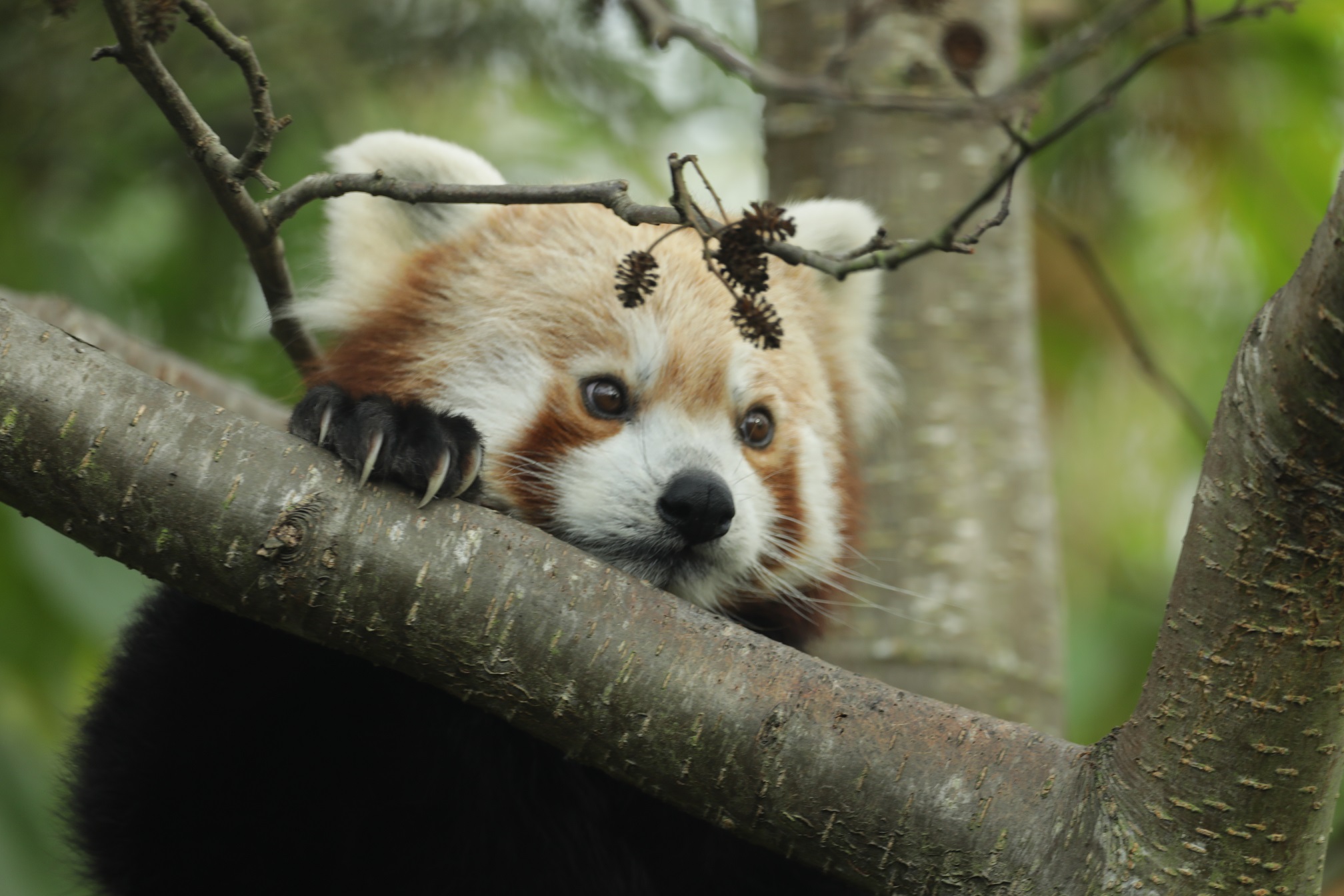Scimitar-horned oryx

Reintroducing a species that is extinct in the wild is extremely challenging. How many individuals should you release? Which individuals should you release? Genetic information can help answer these kinds of questions and that’s exactly how the RZSS WildGenes team has been supporting the scimitar-horned oryx (Oryx dammah) reintroduction programme.
This large, iconic antelope is very well-adapted to the hot, dry climate in the Sahel on the fringes of the Sahara desert, where it was once found. Scimitar-horned oryx can withstand temperatures that are lethal to many other mammals. Their coat colour, kidneys, and circulatory system all help them regulate their body temperature in their natural semi-desert environment.
Scimitar-horned oryx were once widespread across North Africa, but hunting and land-use change by humans had a devastating impact on the species. In 2000, it was declared Extinct in the Wild. Fortunately, scimitar-horned oryx still existed in zoos and other institutions around the world. These animals represented a chance to bring this antelope back to the wild.
Alongside our partners, the RZSS WildGenes team worked on a ground-breaking reintroduction of oryx to Chad, providing analyses of the genetic diversity present in the captive population and helping select individuals for release. We are trialling new genomic approaches to aid monitoring the reintroduced population and have assisted with the analysis of individuals in the European zoo population and released Tunisian populations.
Today, scimitar-horned oryx are back in the wild, with around 400 individuals roaming the grass steppe in Chad. They have been downgraded from Extinct in the Wild to Endangered by the IUCN; an initial success. Careful genetic management is one of the factors that could help ensure their future remains bright in the long-term.
Our Partners and Funders
Project type

Conservation genetics

Conservation translocation
The team
Project updates
Date: December 2023
Scimitar-horned oryx have been downlisted from Extinct in the Wild to Endangered on the IUCN Red List. Our WildGenes team has been working with this species for over a decade and we have provided genetic data and analyses that have helped the reintroduction of the species to Chad since 2016. With 400 animals now in the wild in Chad, the reintroduction is considered an initial success. Follow-up genetic analyses will be important to monitor the continued progress of this project and help ensure a positive path to recovery for this amazing antelope.

Sahara Conservation
Ways you can support

Become a Conservation Champion
Conservation Champions are helping to save 50 of the world's most endangered species from extinction. Give from £1 a week to £1 a day and join a growing group of caring people like you, committed to saving animals in danger.

Connect your business to nature
You can get involved in our work via corporate partnerships, corporate sponsorships, exclusive volunteering opportunities, in-kind gifts and much more. Being a corporate partner is a unique path to meeting your business and corporate social responsibility needs.

Join RZSS as a member
RZSS membership provides much more than just free entry to Edinburgh Zoo and Highland Wildlife Park. Your membership helps support our charity's conservation work around the world.

















/pallascat_3_jp.jpg)



